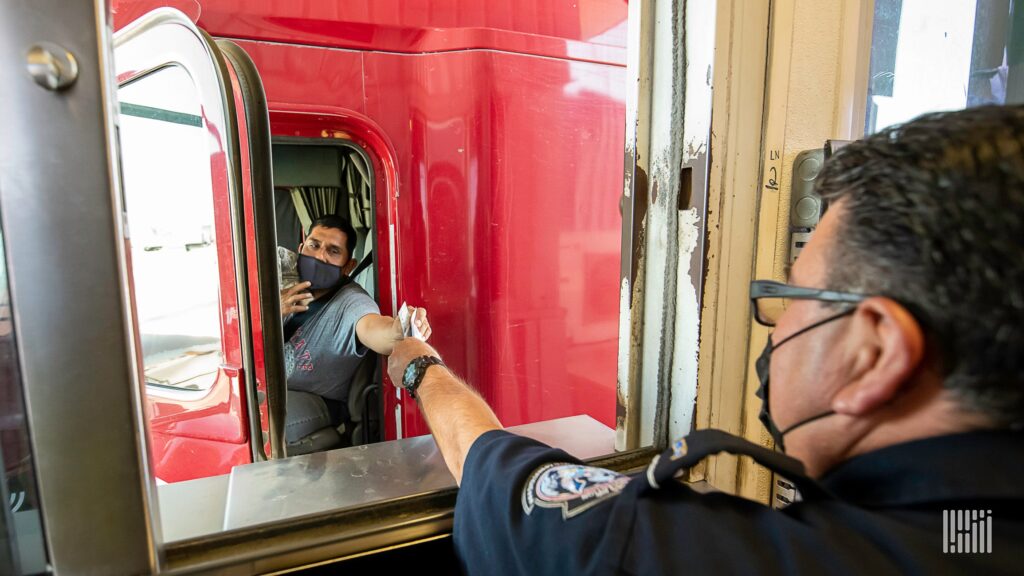WASHINGTON — Trucking firms, independent contractors, and owner-operators are likely to face increased scrutiny of their operations due to various executive orders from the Trump administration focused on tightening measures against illegal immigration.
According to Hadeel Abouhasira, a business immigration attorney at Holland & Knight, these new regulations could significantly impact trucking businesses, potentially leading to elevated costs.
FREIGHTWAVES: How will the new executive orders affect the trucking industry?
ABOUHASIRA: The primary concern for the trucking sector revolves around executive orders relating to cross-border trucking involving travel between the U.S., Mexico, and Canada. The executive orders for the National Emergency at the Southern Border and Securing Our Border could result in extended processing times. If the America First Trade Policy increases scrutiny on truck drivers, some may encounter challenges in renewing work permits or crossing borders, complicating logistics for companies dependent on international transport.
Furthermore, stricter protocols stemming from the Protecting the United States from Foreign Terrorists and Other National Security and Public Safety Threats executive order may lead to higher denial rates for visas or impose travel restrictions, which could impact the availability of foreign drivers.
FREIGHTWAVES: What implications does this have for long-haul trucking?
ABOUHASIRA: A major concern arises when drivers are contracted by a company that might undergo an ICE raid or audit. During such events, if ICE requests information about truck drivers, it is advisable for drivers to carry proof of their legal status, such as a visa, green card, or U.S. passport. This is critical in scenarios like traffic stops or accidents, where drivers need to quickly present their documentation to law enforcement.
FREIGHTWAVES: Should companies that engage independent contractors expect tighter scrutiny regarding documentation?
ABOUHASIRA: Yes, all companies, including those hiring independent contractors, should prepare for potential increased scrutiny of documentation. However, it’s important to note that employers are not required to complete I-9 employment verification forms for independent contractors, as this requirement only applies to employees. Still, heightened scrutiny may occur during ICE audits or raids, where ICE might seek lists of all individuals associated with a company, ultimately affecting drivers as well.
FREIGHTWAVES: Can an ICE raid or audit impact an owner-operator?
ABOUHASIRA: Absolutely. While it’s unlikely that ICE would show up at an owner-operator’s home, any on-road incidents, such as breakdowns or being pulled over, could trigger immigration issues. If an owner-operator is without proper work authorization, they may face detainment or deportation during an ICE inspection. It’s essential for them to keep documentation of valid work authorization, including visas, work permits, green cards, or passports, readily available for inspection.
FREIGHTWAVES: What should legally operating drivers expect?
ABOUHASIRA: Even drivers who are legally present can expect heightened scrutiny. We advise clients to conduct I-9 audits to ensure all their forms are accurate and up to date. Many clients perform internal audits to identify and correct any discrepancies before any government audit occurs, demonstrating proactive compliance in the event of an official review.
FREIGHTWAVES: What are the broader implications for the trucking industry and the supply chain?
ABOUHASIRA: These developments may result in greater administrative burdens and increased costs for trucking companies. The transportation sector is vital to the economy, and its workforce is essential for business operations. If ongoing challenges continue to arise regarding immigration programs and visa issuances, consumers may ultimately experience supply chain disruptions or increased prices.


